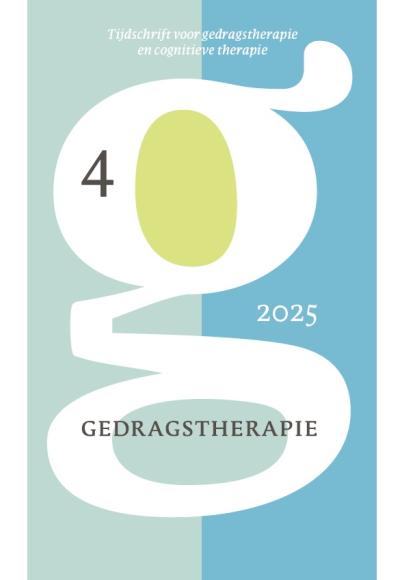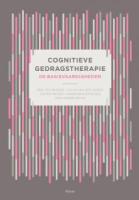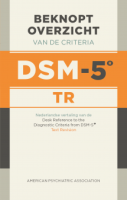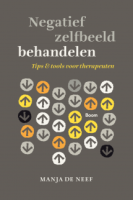Inhoud
Welke psychologische behandeling, uitgevoerd door wie, is het meest effectief bij depressie?
Samenvatting
Meta-analytisch onderzoek kan geen antwoord geven op de vraag "welke behandeling, uitgevoerd door wie, is het meest effectief bij deze patiënt". Dit type onderzoek kan echter wel belangrijke deelvragen daarvan beantwoorden, zoals welke therapieën effectief zijn, of de uitkomsten samenhangen met de behandelaar en de samenhang tussen kenmerken van de patiënt en de effecten. In dit artikel beschrijven we een meta-analytische database van 188 studies naar psychotherapie bij depressie en we vatten de belangrijkste resultaten ervan samen, evenals de resultaten van de ruim 20 papers die we over deze database publiceerden. Ook vergelijken we de uitkomsten daarvan met de resultaten van 42 andere meta-analyses over dit onderwerp. De resultaten laten zien dat verschillende vormen van psychotherapie effectief zijn en dat de verschillen tussen therapieën klein tot afwezig zijn. De effecten van psychotherapie zijn vergelijkbaar met die van farmacotherapie, behalve bij dysthymie patiënten (daarbij is farmacotherapie effectiever). Gecombineerde behandeling is effectiever dan psychotherapie alleen of farmacotherapie alleen. Het is goed mogelijk dat we de effecten van psychotherapie aanzienlijk overschatten doordat studies met lage kwaliteit grotere effecten laten zien dan studies met hoge kwaliteit en omdat we waarschijnlijk ook te maken hebben met het verschijnsel ‘publicatiebias'. Psychotherapie is ook effectief bij ouderen, bij postpartum depressie, bij patiënten met een lichamelijke aandoening, bij chronische depressies (hoewel de effecten daar klein zijn) en bij subklinische depressies. Er zijn geen aanwijzingen dat psychotherapie minder effectief is bij ernstige depressies. Toekomstig onderzoek zal zich moeten richten op effectmoderatoren en -mediatoren, en op andere onderwerpen zoals voorkeuren van patiënten, kosteneffectiviteit en disseminatie van evidence-based behandelingen.
Literatuur
- Barbato, A., & D'Avanzo, B. (2006). Marital therapy for depression. Cochrane Database of Systematic Reviews, Issue 2.
- Barbato, A., & D'Avanzo, B. (2008). Efficacy of couple therapy as a treatment for depression: a meta-analysis. Psychiatric Quarterly, 79, 121-132.
- Beck, A.T., Ward, C.H., Mendelson, M., Mock, J., & Erbaugh, J. (1961). An inventory for measuring depression. Archives of General Psychiatry, 4, 561-571.
- Beck, A.T., Rush, A.J., Shaw, B.F., & Emery, G. (1979). Cognitive therapy of depression. New York, NY: Guilford Press.
- Bledsoe, S.E., & Grote, N.K. (2006). Treating depression during pregnancy and the post partum: a preliminary meta-analysis. Research on Social Work Practice, 16, 109-120.
- Bohlmeijer, E., Smit, F., & Cuijpers, P. (2003). Effects of reminiscence and life-review on late-life depression: A meta-analysis. International Journal of Geriatric Psychiatry, 18, 1088-1094.
- Casacalenda, N., Perry, J.C., & Looper, K. (2002). Remission in major depressive disorder: A comparison of pharmacotherapy, psychotherapy, and control conditions. American Journal of Psychiatry,159, 1354–1360.
- Chan, E.K.H. (2006). Efficacy of cognitive-behavioral, pharmacological, and combined treatments of depression: A meta-analysis. Doctoral dissertation, University of Galgary.
- Churchill, R., Hunot, V., Corney, R., Knapp, M., McGuire, H., Tylee, A., & Wessely, S. (2001). A systematic review of controlled trials of the effectiveness and cost-effectiveness of brief psychological treatments for depression. Health Technology Assessment, 5, 35.
- Crepaz, N., Passin, W.F., Herbst, J.H., Rama, S.M., Malow, R.M., Purcell, D.W., & Wolitski, RJ. (2008). Meta-analysis of cognitive-behavioral interventions on HIV-positive persons' mental health and immune functioning. Health Psychology, 27, 4-14.
- Cuijpers, P. (1997). Bibliotherapy in unipolar depression. Journal of Behavior Therapy and Experimental Psychiatry, 28, 139-147.
- Cuijpers, P. (1998). A psycho-educational approach to the treatment of depression; a meta-analysis of Lewinsohn's 'Coping with Depression' course. Behavior Therapy, 29, 521-533.
- Cuijpers, P. (1998). Psychological outreach programs for depressed elderly; a meta-analy sis of effects and drop-out. International Journal of Geriatric Psychiatry, 13, 41-48.
- Cuijpers, P., & Dekker, J. (2005). Psychologische behandeling van depressie: een syste matisch overzicht van meta-analyses. Nederlands Tijdschrift voor Geneeskunde, 149, 1892-1897.
- Cuijpers, P., Straten, A. van & Smit, F. (2006). Psychological treatment of late-life depression: A meta-analysis of randomized controlled trials. International Journal of Geriatric Psychiatry, 21, 1139-1149.
- Cuijpers, P., Straten, A. van & Smit, F. (2007a). Psychological treatments of subthreshold depression: A meta-analytic review. Acta Psychiatrica Scandinavica, 115, 434–441.
- Cuijpers, P., Straten, A. van & Warmerdam, L. (2007b). Behavioral treatment of depression: A meta-analysis of activity scheduling. Clinical Psychology Review, 27, 318-326.
- Cuijpers, P., Straten, A. van & Warmerdam, L. (2007c). Problem solving therapies for depression: A meta-analysis. European Psychiatry, 22, 9-15.
- Cuijpers, P., Brännmark, J.G., & Straten, A. van (2008a). Psychological treatment of post partum depression: A meta-analysis. Journal of Clinical Psychology, 64, 103-118.
- Cuijpers, P., Straten, A. van & Warmerdam, L (2008b). Are individual and group treatments equally effective in the treatment of depression in adults? A meta-analysis. European Journal of Psychiatry, 22, 38-51.
- Cuijpers, P., Straten, A. van, Oppen, P. van & Andersson, G. (2008c). Are psychological and pharmacological interventions equally effective in the treatment of adult depressive disorders? A meta-analysis of comparative studies. Journal of Clinical Psychiatry, 69, 1675-1685..
- Cuijpers, P., Straten, A. van, Warmerdam, L., & Andersson, G. (2008d). Psychological treatment of depression: A meta-analytic database of randomized studies. BMC Psychiatry, 8, 36.
- Cuijpers, P., Straten, A. van, Andersson, G., & Oppen, P. van (2008e). Psychotherapy for depression in adults: A meta-analysis of comparative outcome studies. Journal of Consulting and Clinical Psychology, 76, 909-922.
- Cuijpers, P., Straten, A. van, Warmerdam, L., & Andersson, G. (2009a). Psychological treatment versus combined treatment of depression: A meta-analysis. Depression & Anxiety, 26, 279-288.
- Cuijpers, P., Straten, A. van, Smit, F., & Andersson, G. (2009b). Is psychotherapy for depression equally effective in younger and older adults? A meta-regression analysis. International Psychogeriatrics, 21, 16–24.
- Cuijpers, P., Dekker, J., Hollon, S.D., & Andersson, G. (2009c). Adding psychotherapy to pharmacotherapy in the treatment of depressive disorders in adults: A meta-analysis. Journal of Clinical Psychiatry, 70,1219-1229.
- Cuijpers, P., Muñoz, R.F., Clarke, G.N., & Lewinsohn, P.M. (2009d). Psychoeducational treatment and prevention of depression: The "Coping with Depression" course thirty years later. Clinical Psychology Review, 29, 449-458.
- Cuijpers, P., Straten, A. van, Warmerdam, L., & Andersson, G. (2009e). Psychological treatment versus combined treatment of depression: A meta-analysis. Depression & Anxiety, 26, 279-288.
- Cuijpers, P., Straten, A. van, Smit, F., & Andersson, G. (2009f). Is psychotherapy for depression equally effective in younger and older adults? A meta-regression analysis. International Psychogeriatrics, 21, 16–24
- Cuijpers, P., Straten, A. van, Bohlmeijer, E., Hollon, S.D., & Andersson, G. (2010a). The effects of psychotherapy for adult depression are overestimated: A meta-analysis of study quality and effect size. Psychological Medicine, epub ahead of print, doi:10.1017/ S0033291709006114.
- Cuijpers, P., Straten, A. van, Schuurmans, J., Oppen, P. van, Hollon, S.D., & Andersson, G. (2009h). Psychotherapy for chronic major depression and dysthymia: A meta-analysis. Clinical Psychology Review, epub ahead of print, doi:10.1016/j.cpr.2009.09.003.
- Cuijpers, P., van Straten, A., van Schaik, A., & Andersson, G. (2009i). Psychological treatment of depression in primary care: A meta-analysis. British Journal of General Practice, 59, 120-127.
- Cuijpers, P., Smit, F., Bohlmeijer, E., Hollon, S.D., & Andersson, G. (2010b). Is the efficacy of psychotherapy for adult depression overestimated? A meta-analytic study of publication bias. Submitted.
- De Maat, S., Dekker, J., Schoevers, R., & De Jonghe, F. (2006). Relative efficacy of psycho therapy and pharmacotherapy in the treatment of depression: A meta-analysis. Psychotherapy Research, 16, 566-578.
- De Maat, S., Dekker, J., Schoevers, R.A., & Jonghe, F. de (2007). Relative efficacy of psychotherapy and combined therapy in the treatment of depression: A meta-analysis. European Psychiatry, 22, 1-8.
- De Mello, M.F., De Jesus Mari, J., Bacaltchuk, J., Verdeli, H., & Neugebauer, R. (2005). A systematic review of research findings on the efficacy of interpersonal therapy for depressive disorders. European Archives of Psychiatry and Clinical Neuroscience, 255, 75-82.
- Den Boer, P.C., Wiersma, D., Russo, S., & Bosch, R.J. van den (2005). Paraprofessionals for anxiety and depressive disorders. Cochrane Database of Systematic Reviews, 2005, Issue 2.
- Dennis, C.L., & Hodnett, E. (2007). Psychosocial and psychological interventions for treating postpartum depression. Cochrane Database of Systematic Reviews, 2007, Issue 4.
- Ekers, D., Richards, D., & Gilbody, S. (2008). A meta-analysis of randomized trials of behavioural treatment of depression. Psychological Medicine, 38, 611-623.
- Ellis, P., & Royal Australian and New Zealand College of Psychiatrists Clinical Practice Guidelines Team for Depression (2004). Australian and New Zealand clinical practice guidelines for the treatment of depression. Australian and New Zealand Journal of Psychiatry, 38, 389-407.
- Engels, G.I., & Verney, M. (1997). Efficacy of nonmedical treatments of depression in elders: a quantitative analysis. Journal of Clinical Geropsychology, 3, 17-35.
- First, M.B., Spitzer, R.L., Williams, J.B.W., & Gibbon, M. (1995). Structured Clinical Interview for DSM-IV. Washington, DC, American Psychiatric Press.
- Friedman, M.A., Detweiler-Bedell, J.B., Leventhal, H.E., Horne, R., Keitner, G.I., & Miller, I.W. (2004). Combined Psychotherapy and Pharmacotherapy for the Treatment of Major Depressive Disorder. Clinical Psychology Science and Practice, 11, 47-68.
- Gaffan, E.A., Tsaousis, I., & Kemp-Wheeler, S.M. (1995). Researcher allegiance and meta-analysis: the case of cognitive therapy for depression. Journal of Consulting and Clinical Psychology, 63, 966-980.
- Gellatly, J., Bower, P., Hennessy, S., Richards, D., Gilbody, S., & Lovell, K. (2007). What makes self-help interventions effective in the management of depressive symptoms? Metaanalysis and meta-regression. Psychological Medicine, 37, 1217-1228.
- Ghazi-Noori, S., Chung, T.H., Deane, T.H., Rickards, H., & Clarke, C.E. (2003). Therapies for Depression in Parkinson's Disease. Cochrane Database of Systematic Reviews 2003, Issue 2.
- Gloaguen, V., Cottraux, J., Cucherat, M., & Blackburn, I.M. (1998). A meta-analysis of the effects of cognitive therapy in depressed patients. Journal of Affective Disorders, 49, 59-72.
- Gregory, R., Canning, S., Lee, T., & Wise, J. (2004). Cognitive Bibliotherapy for Depression: A Meta-Analysis. Professional Psychology Research and Practice, 35, 275-280.
- Hackett, M.L., Anderson, C.S., & House, A.O. (2004). Interventions for treating depression after stroke. Cochrane Database of Systematic Reviews, 2004, 2.
- Hamilton, M. (1960). A rating scale for depression. Journal of Neurology Neurosurgery & Psychiatry, 23, 56–62.
- Henken, H.T., Huibers, M.J., Churchill, R., Restifo, K., & Roelofs, J. (2007). Family therapy for depression. Cochrane Database of Systematic Reviews, 2007, Issue 3.
- Higgins, J.P.T., & Green, S. (2006). Cochrane Handbook for Systematic Reviews of Interventions 4.2.6 [updated September 2006]. In: Cochrane Library, Issue 4, 2006. Chichester, UK: John Wiley & Sons, Ltd.
- Himelhoch, S., Medoff, D.R., & Oyeniyi, G. (2007). Efficacy of group psychotherapy to reduce depressive symptoms among HIV-infected individuals: a systematic review and meta-analysis. AIDS patient care and STDs, 21, 732-739.
- Hunsley, J., & Lee, C.M. (2007). Research-informed benchmarks for psychological treatments: Efficacy studies, effectiveness studies, and beyond. Professional Psychology: Research and Practice, 38, 21-33.
- Karasu, T.B., Gelenberg, A., Merriam, A., & Wang, P. (2000). Practice guideline for the treatment of patients with major depressive disorder; second edition. American Psychiatric Association.
- Klaassen, T., Verhey, F.R., Sneijders, G.H., Rozendaal, N., Vet, H.C. de & Praag, H.M. van (1995). Treatment of depression in Parkinson's disease: a meta-analysis. Journal of Neuropsychiatry and Clinical Neuroscience, 7, 281-286.
- Koder, D.A., Brodaty, H., & Anstey, K.J. (1996). Cognitive therapy for depression in the elderly. International Journal Of Geriatric Psychiatry, 11, 97-107.
- Kraemer, H.C., & Kupfer, D.J. ( 2006). Size of treatment effects and their importance to clinical research and practice. Biological Psychiatry, 59, 990-996.
- Leichsenring, F. (2001). Comparative effects of short-term psychodynamic psychotherapy and cognitive-behavioral therapy in depression: A meta-analytic approach. Clinical Psychology Review, 21, 401–419.
- Lilienfeld, S.O. (2007). Psychological treatments that cause harm. Perspectives on Psychological Science, 2, 53-70.
- Lip, G.Y.H., Lane, D.A., Millane, T.A., & Tayebjee, M.H. (2002). Psychological interventions for depression in adolescent and adult congenital heart disease. Cochrane Database of Systematic Reviews 2002, Issue 4.
- Lipsey, M.W. (1990) Design Sensitivity; Statistical Power for Experimental Research. Sage, Newbury Park.
- Lumley, J., Austin, M.P., & Mitchell, C. (2004). Intervening to reduce depression after birth: A systematic review of the randomized trials. International Journal of Technology Assessment in Health Care, 20, 128-144.
- Malouff, J.M., Thorsteinsson, E.B., & Schutte, N.S. (2007). The efficacy of problem solving therapy in reducing mental and physical health problems: A meta-analysis. Clinical Psychology Review, 27, 46-57.
- Marrs, R.W. (1995). A meta-analysis of bibliotherapy studies. American Journal of Community Psychology, 23, 843-870.
- McCusker, J., Cole, M., Keller, E., Bellavance, F. ,& Berard, A. (1998). Effectiveness of treatments of depression in older ambulatory patients. Archives of Internal Medicine, 158, 705-712.
- McDermut, W., Miller, I.W., & Brown, R.A. (2001). The efficacy of group psychotherapy for depression: A meta-analysis and review of the empirical research. Clinical Psychology: Science and Practice, 8, 98-116.
- Menchola, M., Arkowitz, H.S., & Burke, B.L. (2007). Efficacy of self-administered treatments for depression and anxiety. Professional Psychology: Research and Practice, 38, 421-429.
- Mohr, D.C., & Goodkin, D.E. (1999). Treatment of depression in multiple sclerosis: Review and meta-analysis. Clinical Psychology: Science and Practice, 6, 1-9.
- Mueller, T. I., Leon, A.C., Keller, M.B., Solomon, D.A., Endicott, J., Coryell, W., et al. (1999). Recurrence after recovery from major depressive disorder during 15 years of observational follow-up. American Journal of Psychiatry, 156, 1000–1006.
- Newton-Howes, G., Tyrer, P., & Johnson, T. (2006). Personality disorder and the outcome of depression: meta-analysis of published studies. British Journal of Psychiatry, 188, 13-20.
- NICE, National Institute for Clinical Excellence (2004). Depression: Management of depression in primary and secondary care. National Clinical Practice Guideline Number 23, National Collaborating Centre for Mental Health, UK.
- Osborn, R.L., Demoncada, A.C., & Feuerstein, M. (2006). Psychosocial interventions for depression, anxiety, and quality of life in cancer survivors: Meta-analyses. International Journal of Psychiatry in Medicine, 36, 13-34.
- Pampanolla, S., Bollini, P., Tibaldi, G., Kupelnick, B., & Munizza, C. (2004). Combined pharmacotherapy and psychological treatment for depression; a systematic review. Archives of General Psychiatry, 61, 714-719.
- Paul, G.L. (1967). Strategy of outcome research in psychotherapy. Journal of Consulting Psychology, 31, 109-118.
- Pinquart, M., Duberstein, P.R., & Lyness, J.M. (2006). Treatments for later-life depressive conditions: a meta-analytic comparison of pharmacotherapy and psychotherapy. American Journal of Psychiatry, 163, 1493-1501.
- Pinquart, M., Duberstein, P.R., & Lyness, J.M. (2007). Effects of psychotherapy and other behavioral interventions on clinically depressed older adults: a meta-analysis. Aging and Mental Health, 11, 645-657.
- Pinquart, M., & Sörensen, S. (2001). How effective are psychotherapic and other psychosocial interventions with older adults? A meta-analysis. Journal of Mental Health and Aging, 7, 207-243.
- Robins, L.N., Wing, J., & Wittchen, H.U., 1988. The Composite International Diagnostic Interview: An epidemiological instrument suitable for use in conjunction with different diagnostic systems and in different cultures. Archives of General Psychiatry, 45, 1069–1077.
- Roth, A., & Fonagy, P. (2004). What Works for Whom? Second Edition. New York: Guilford Publications.
- Rutledge, T., Reis, V.A., Linke, S.E., Greenberg, B.H., & Mills, P.J. (2006). Depression in heart failure. a meta-analytic review of prevalence, intervention effects, and associations with clinical outcomes. Journal of the American College of Cardiology, 48, 1527-1537.
- Segal, Z.V., Whitney, D.K., Lam, R.W., & CANMAT Depression Work Group (2001). Clinical guidelines for the treatment of depressive disorders III. Psychotherapy. Canadian Journal of Psychiatry, 46, 29S-37S.
- Sheard, T., & McGuire, P. (1999). The effect of psychological interventions on anxiety and depression in cancer patients: results of two meta-analyses. British Journal of Cancer, 80, 1770–1780.
- Spek, V., Cuijpers, P., Nyklíček, I., Riper, H., Keyzer, J., & Pop, V. (2007). Internet-based cognitive behavior therapy for mood and anxiety disorders: a meta-analysis. Psychological Medicine, 37, 319-328.
- Spielmans, G.I., Pasek, L.F., & McFall, J.P. (2007). What are the active ingredients in cognitive and behavioral psychotherapy for anxious and depressed children? A metaanalytic review. Clinical Psychology Review, 27, 642-54.
- Stiles, W.B., Shapiro, D.A., & Elliott, R. (1986). Are all psychotherapies equivalent? American Psychologist, 41, 165-180.
- Vittengl, J.R., Clark, L.A., Dunn, T.W., & Jarrett, R.B. (2007). Reducing relapse and recurrence in unipolar depression: a comparative meta-analysis of cognitive-behavioral therapy's effects. Journal of Consulting and Clinical Psychology, 75, 475-488.
- Wampold, B.E., Minami, T., Baskin, T.W., & Tierney, S.C. (2002). A meta-(re)analysis of the effects of cognitive therapy versus 'other therapies' for depression. Journal of Affective Disorders, 68, 159-165
- Wampold, B.E., Minami, T., Tierney, S.C., Baskin, T.W., & Bhati, K.S. (2005). The placebo is powerful: estimating placebo effects in medicine and psychotherapy from randomized clinical trials. Journal of Clinical Psychology, 61, 835-854.
- Wilson, K.C.M, Mottram, P.G., & Vassilas, C.A. (2008). Psychotherapeutic treatments for older depressed people. Cochrane Database of Systematic Reviews 2008, Issue 1.
 © 2009-2025 Uitgeverij Boom Amsterdam
© 2009-2025 Uitgeverij Boom Amsterdam
De artikelen uit de (online)tijdschriften van Uitgeverij Boom zijn auteursrechtelijk beschermd. U kunt er natuurlijk uit citeren (voorzien van een bronvermelding) maar voor reproductie in welke vorm dan ook moet toestemming aan de uitgever worden gevraagd:
Behoudens de in of krachtens de Auteurswet van 1912 gestelde uitzonderingen mag niets uit deze uitgave worden verveelvoudigd, opgeslagen in een geautomatiseerd gegevensbestand, of openbaar gemaakt, in enige vorm of op enige wijze, hetzij elektronisch, mechanisch door fotokopieën, opnamen of enig andere manier, zonder voorafgaande schriftelijke toestemming van de uitgever.
Voor zover het maken van kopieën uit deze uitgave is toegestaan op grond van artikelen 16h t/m 16m Auteurswet 1912 jo. Besluit van 27 november 2002, Stb 575, dient men de daarvoor wettelijk verschuldigde vergoeding te voldoen aan de Stichting Reprorecht te Hoofddorp (postbus 3060, 2130 KB, www.reprorecht.nl) of contact op te nemen met de uitgever voor het treffen van een rechtstreekse regeling in de zin van art. 16l, vijfde lid, Auteurswet 1912.
Voor het overnemen van gedeelte(n) uit deze uitgave in bloemlezingen, readers en andere compilatiewerken (artikel 16, Auteurswet 1912) kan men zich wenden tot de Stichting PRO (Stichting Publicatie- en Reproductierechten, postbus 3060, 2130 KB Hoofddorp, www.cedar.nl/pro).
No part of this book may be reproduced in any way whatsoever without the written permission of the publisher.
Inloggen VGCt en VVGT
Leden van de VGCt en de VVGT loggen in via de site van hun vereniging. Als u op die site bent ingelogd als lid, vindt u daar een button naar het Tijdschrift voor Gedragstherapie.
English
Behavioral Therapy: Journal for Behavioral Therapy and Cognitive Therapy ISSN 0167-7454
Information in English can be found here.







